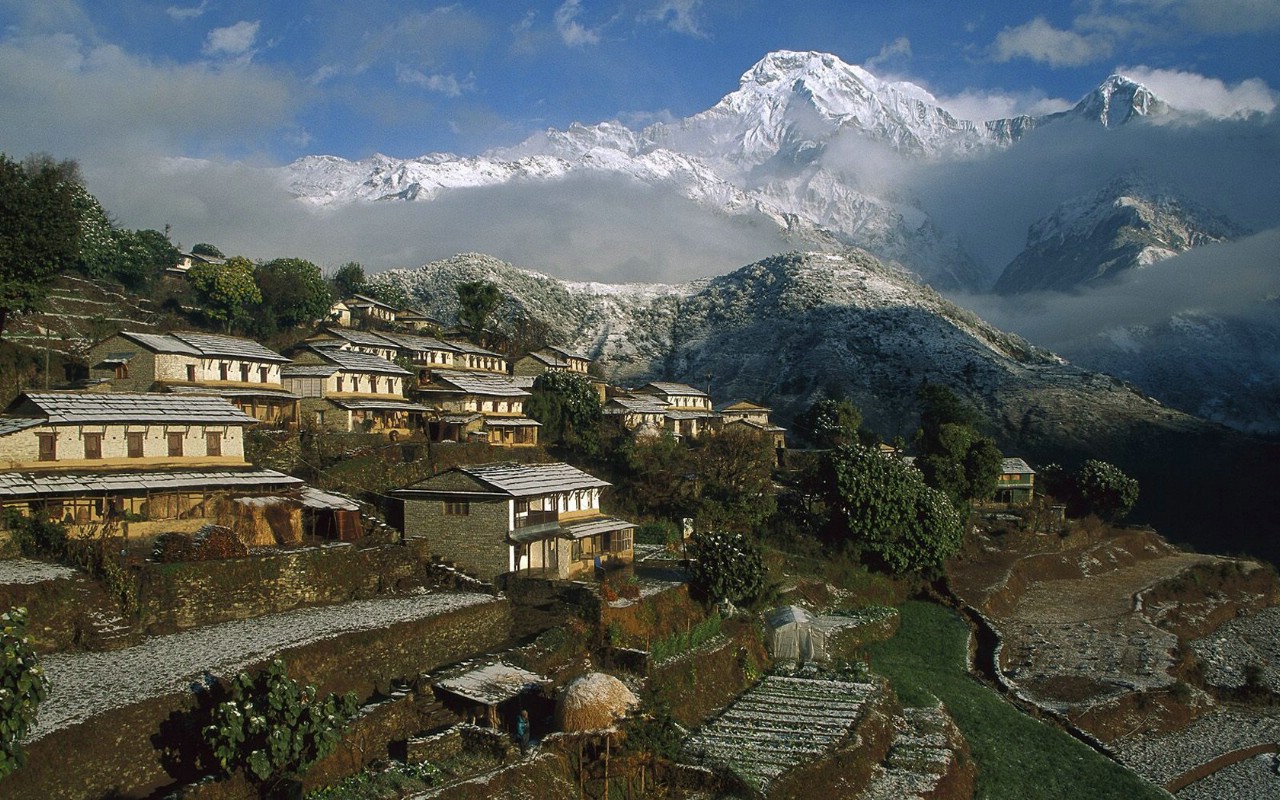Boosting mountain region's ecology, sustainability to reduce poverty

Mountain regions should avoid the vicious cycle of “Population-Poverty-Environment” to develop a new model of urbanization.
As socioeconomic transformation progresses, resources tend to flow into cities, posing a new series of challenges for economic development in mountain regions.
Recently, Chinese President Xi Jinping stressed the importance of poverty relief in the 2016-2020 period during his inspection tour of Guizhou Province and reiterated the goal of establishing a "comprehensively well-off society" by 2020.
Breaking the cycle
Zhou Minliang, a research fellow from the Institute of Industrial Economics under the Chinese Academy of Social Sciences, summarized the constraints of development in mountain regions.
First, traditional agriculture is the primary mode of production because the foundation of industrial development in mountain areas is generally poor. Traditional patterns of production and consumption are still prevalent while industrial chain is short with single products and low levels of development.
Second, some local governments are not innovative enough. Third, the relatively low level of education in impoverished mountain regions means that the economic behavior of the public is vulnerable to the influence of traditional customs, and residents of these regions are slow to adopt modern economic development patterns. Finally, the fragility of the natural environment also takes a toll.
Dai Ming, a professor of economics at Jinan University in Guangdong Province, said that transportation, investment and talent are vital to the development of mountain regions because these places are inclined to fall into a vicious cycle, that is, poverty leads to poor transportation, while in turn poor transportation, causes more poverty. The same goes with investment and talent.
Under the new situation of socioeconomic development, mountain regions need to figure out the roots of the problems and take effective policy measures to break the cycle, facilitating internal and external factors to lift out of poverty.
Comprehensive planning
Scholars suggest that we should not take mountain regions as a burden in nationwide development. Rather, their contribution in ecological screen and potential should be valued. The key is to break the bottleneck and release the potential. In addition to strengthening industry and tourism, a breakthrough is needed in drawing investment to close the gap between mountain and coastal regions.
Dai said that mountain regions should carry out standard investment policies, enhance service for business investment, emphasize environmental investment, and explore a path of attracting investment through the market and existing investment.
Zhou said institutional innovation and reform are fundamental to combine central government spending and local resources, government policy and market mechanism, while good planning is also conducive to building the capacity for self-sustainability in mountain regions.
Therefore, local government should take full advantage of the nationwide and local think tanks, Zhou noted.
Fang Yiping, a research fellow from the Institute of Mountain Hazards and Environment under the Chinese Academy of Sciences, said that a clear-minded government-led development plan with set goals, effective measures and feasible policies is essential to serve as a scientific blueprint for the development of mountain regions across the nation.
New model of urbanization
To lift people in the mountain regions out of poverty, we must take the road of sustainable development because once the fragile environment is destroyed, it is difficult or impossible to repair, Zhou said.
Seeking short-term economic gains at the cost of long-time ecological damage is totally unwise, he continued.
Therefore, Zhou suggested, economic development in the impoverished mountain region must avoid the previous "treatment after pollution" approach, which not only is detrimental to local sustainable development but could bring ecological disaster to the basin as a whole, including the downstream.
A cluster of poor areas is mainly located in mountains, trapping in the vicious cycle of "Population-Poverty-Environment (PPE)." In light of this, scholars said one of the essential ways to break the cycle is to develop a new model of urbanization that promotes the sustainability of mountain regions.
Zhang Chunhai is a reporter at the Chinese Social Sciences Today.

 PRINT
PRINT CLOSE
CLOSE